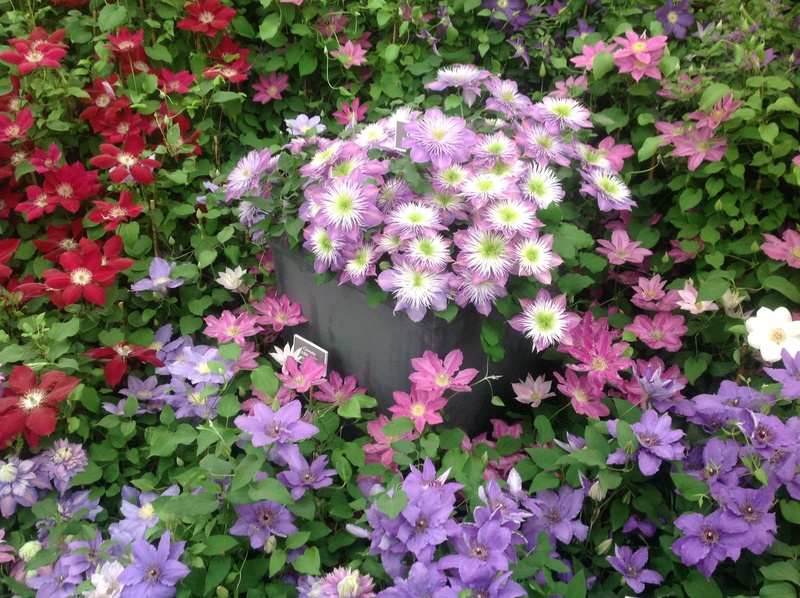Master the Basics: 9 Beginner-Friendly Gardening Tips
Posted on 23/05/2025
Master the Basics: 9 Beginner-Friendly Gardening Tips
Are you excited to start gardening but unsure where to begin? Whether you have a small balcony or a spacious backyard, gardening can be an enjoyable, therapeutic, and rewarding hobby for everyone. To help you get started, we've put together this comprehensive guide featuring nine simple yet effective beginner gardening tips. Enhance your green thumb and transform your space with a blossoming, thriving garden!

Why Should You Start Gardening?
Not only does gardening offer health benefits like stress relief, physical activity, and better nutrition, but it also enhances the aesthetic and environmental value of your home. Before you get your hands dirty, understanding gardening basics is crucial to establishing a flourishing sanctuary. Let's dive into the essential tips for gardening beginners.
1. Choose the Right Location for Your Garden
The first step in your gardening journey is finding the best spot for your plants. Most vegetables, herbs, and flowering plants need at least six to eight hours of sunlight daily. Take the time to observe the patterns of the sun and shade in your space.
- Sunlight Exposure: Place sun-loving plants, like tomatoes and roses, where they'll receive plenty of direct sunlight.
- Shade-Tolerant Plants: Ferns, hostas, and impatiens thrive in shadier corners.
- Accessibility: Choose a location that is easy to water, weed, and harvest from regularly.
Tip: Keep your garden close to your home for convenience and increased enjoyment!
2. Start with the Right Soil
The foundation of a great garden is healthy soil. Soil quality affects how well your plants grow and absorb nutrients. Conduct a simple soil test to check pH levels and nutrient content.
- Amend with Compost: Add organic matter such as compost, aged manure, or peat moss to improve soil texture, drainage, and fertility.
- Check Drainage: Healthy soil should retain water but never stay soggy. If water pools for hours, choose raised beds or containers.
- Soil Type: Sandy, clay, silt, or loamy - loam is often best for a variety of plants.
Understanding basic gardening techniques includes enriching your soil, which lays the groundwork for a vibrant garden.
3. Select Beginner-Friendly Plants
Not all plants are created equal when it comes to ease of care. If you're just beginning, choose hardy, low-maintenance plants. Focus on varieties suitable for your climate (zone). Some popular options include:
- Sunflowers
- Lettuce
- Marigolds
- Zucchini
- Basil
- Pansies
- Mint
Visit your local nursery and talk to experts about the best starter plants for your growing region.
4. Water Wisely - The Key to Healthy Plants
Watering might seem straightforward, but overwatering and underwatering are common mistakes for new gardeners. Learn your plants' specific watering needs and monitor soil moisture.
- Morning Watering: Water early in the day to reduce evaporation and prevent diseases.
- Soak Roots: Water deeply and less frequently to encourage deep root growth.
- Mulch: Mulching helps retain soil moisture and keeps weeds at bay.
Gardening for beginners is made easier when you understand the importance of proper watering habits.
5. Master Planting Techniques
The way you plant seeds or young transplants can significantly impact their future growth. Be sure to:
- Read seed packets or plant tags for spacing and depth instructions.
- Loosen the root ball gently when transplanting.
- Firm Soil: Gently pat soil around the base of plants, but don't compact it.
- Label Rows: Use plant markers to keep track of what you've planted and where.
Proper planting ensures that every seed or plant gets the head start it deserves, helping you grow your garden successfully from day one.
6. Feed Your Plants Regularly
Just like people, plants need food to thrive. In addition to quality soil, a balanced fertilization regimen promotes vigorous growth and beautiful blooms.
- Organic Options: Use compost, fish emulsion, or well-rotted animal manure for natural nutrients.
- Slow Release Fertilizer: These are ideal for busy gardeners.
- Follow Instructions: Over-fertilizing can damage plants, so always use as directed.
Your success as a beginning gardener is often linked to how well you nourish your plants.
7. Keep Weeds Under Control
Weeds compete with your plants for nutrients, water, and light. Stay ahead of the game by:
- Hand-pulling weeds while they're small.
- Applying organic mulch to smother weed seeds.
- Maintaining Edges: Use a spade to keep garden beds tidy and prevent grass encroachment.
Consistent maintenance is a core gardening tip for beginners to keep your garden healthy and productive.
8. Get to Know Common Pests and Diseases
Even the most well-tended gardens face threats from insects and disease. Early detection is key:
- Inspect Leaves: Look for holes, spots, or discoloration regularly.
- Encourage Beneficial Insects: Ladybugs and lacewings prey on harmful aphids and other pests.
- Natural Remedies: Neem oil or a homemade soap spray can often control pests organically.
- Remove diseased plants promptly to avoid spreading issues.
Learning to identify and address common problems is essential to mastering beginner gardening techniques.
9. Document and Learn from Your Gardening Experience
Gardening is a journey of continual learning. Keeping a gardening journal allows you to track successes and mistakes, helping you improve with each season:
- Record planting dates, varieties, weather conditions, and outcomes.
- Take Photos: Visual records help you track changes and progress.
- Note which plants performed best and which didn't thrive.
Your journal will become your custom guide, full of personalized gardening insights to boost your confidence and expertise.
Extra Tips for Gardening Beginners
- Don't Be Afraid to Ask for Help: Local gardening clubs and online forums are treasures of advice and encouragement.
- Invest in Quality Tools: A sturdy hand trowel, watering can, and gloves make work easier and prevent injuries.
- Start Small and Expand Gradually: Begin with a few plants or a compact bed before scaling up.
- Enjoy the Process: Gardening is as much about the journey as the harvest!
Remember, everyone makes mistakes--each slip is just another opportunity to grow as a gardener.
How Beginner Gardeners Can Succeed
Starting a garden might feel overwhelming, but by mastering gardening basics, you set yourself up for success. It's more about patience, observation, and enjoyment than perfection. As you spend time with your plants, you'll begin to notice their unique rhythms and needs.
Additional Resources for New Gardeners
- Local Cooperative Extension offices for tailored advice
- Books like "The Vegetable Gardener's Bible" by Edward C. Smith
- Online gardening communities and video tutorials

Final Thoughts on Beginner Gardening Tips
Gardening for beginners is a joyful adventure filled with opportunities for growth, learning, and self-discovery. By following these nine beginner-friendly gardening tips, you'll be well-equipped to nurture a bountiful, beautiful garden. Remember:
- Start with small, manageable goals
- Observe and learn from your plants
- Celebrate your progress, no matter how tiny
With consistent care and a curious spirit, your garden--and your gardening skills--will flourish season after season. Get started today and discover the endless joys that come from growing your own green oasis!
Frequently Asked Questions for Gardening Beginners
- Q: What's the easiest plant to grow as a beginner?
A: Lettuce, radishes, and marigolds are very forgiving and ideal for new gardeners. - Q: When is the best time to water my garden?
A: Water in the early morning to minimize evaporation and reduce risk of disease. - Q: How often should I fertilize my plants?
A: Most plants benefit from feeding every 4-6 weeks during their growing season. - Q: How do I prevent pests without chemicals?
A: Encourage beneficial insects, keep plants healthy, and use organic deterrents like neem oil or insecticidal soap.
Ready to Start Your Gardening Adventure?
Put these beginner gardening tips to work and watch your garden thrive! Don't forget to enjoy the fresh air, connect with nature, and savor the satisfaction of growing your own flowers, herbs, and vegetables. Happy gardening!



